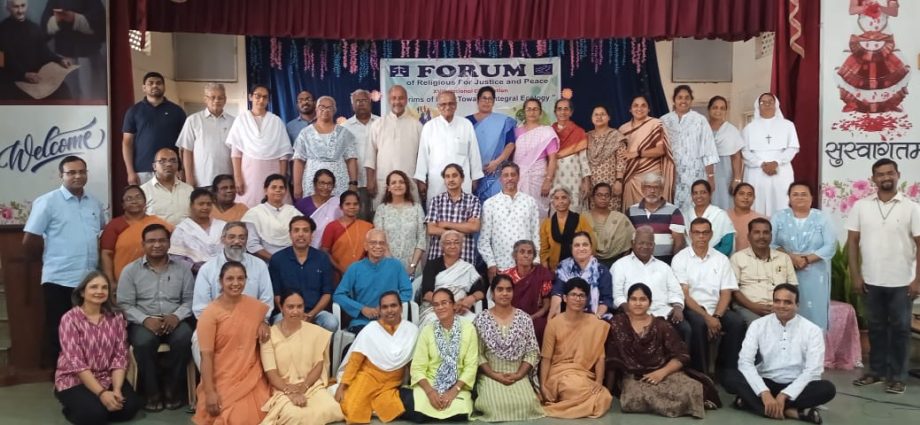By Matters India Reporter
Indore, Oct 20, 2024: The progressive group among India’s Catholic religious has resolved to live their prophetic call to address systemic, structural issues in society.
For this, the members of Forum of Religious for Justice and Peace, who met October 18-20at Indore, central India, decided to adopt bold and creative steps to care for earth, “our common home.”
But this would be possible, the members agreed, if they changed from within. So, they have decided to adopt simpler lifestyles, live closer to the poor, and avoid unnecessary consumption and extravagance.
The participants came from 15 states and 24 congregations to attend the forum’s 18th national assembly that addressed the theme, “Pilgrims of Hope: Towards Integral Ecology.”
At the assembly, a wide range of resource persons challenged them to become alert to social realities and respond proactively to the structural issues that cause environmental destruction and further pauperization of the poor.
The forum members have agreed that structural changes are not possible if they resort to mere tokenism, cosmetic activities or superficialities. Instead, they should focus on structural transformation.
They have resolved to openly oppose the government’s anti-environment legislation, policies and notifications that help the rich to profit and directly impact on the poor, violating their human rights, lives, and livelihood.
The assembly noted that the major issues facing society are the environmental and climate crises caused by overexploitation of Mother Earth. This leads to nature-related disasters, the loss of biodiversity, the loss of livelihood and health hazards.
According to them, “the new religion of unfettered economic growth, wealth creation and consumption,” harms the environment and threatens humanity’s existence.
Another hurdle is the market- driven economic model that leads to commodification and the corporatization of natural resources.
The arms and ammunition industry, unbridled urbanisation, the nexus between powerful vested interests and ruling regimes also threaten the environment.
The participants regretted that India has done little to realize the goals set by the 2015 United Nations Climate Change Conference (COP21) in Paris. The Paris Agreement, they noted, was a legally binding international treaty to combat climate change.
The participants asserted that development must be people-centred, inclusive, holistic, just, equitable, sustainable and life-promoting.
“Democratization through decentralization, accepting the religion of humanity and of nature, and seeing people as the first of pillar of democracy are needed to respond effectively to climate/environmental crisis,” they said.
The participants stressed the need to internalize individually and collectively the values in the Pope Francis’ Encyclical Laudato Si and Apostolic Exhortation Laudate Deum and to communicate the significant content of these documents to people in their own languages.
They have resolved to engage in serious study and research, with the necessary documentation and authentic data on the environmental crises.
They promised to continue to collaborate and network with other like-minded individuals, groups, and campaigns, to protect water bodies and rivers and to oppose eviction of people for development projects.
The participants underscored the need to work with children and youth to create greater sensitivity to the environment among them.
They chalked out regional action plans to implement in their states in the coming year.
The forum is a solidarity group of religious women and men established in 1987. It has been working for justice in the Church and society at large.










